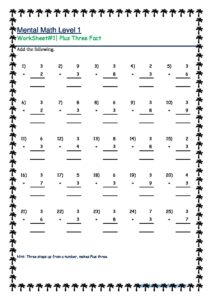Multiplication with the identity property
Multiplication with the identity property
Multiplication with the identity property is a fundamental concept in mathematics that involves multiplying any number by a specific value called the “multiplicative identity” without changing the value of the original number. This property plays a crucial role in arithmetic and algebraic operations. Here’s a description of multiplication with the identity property:
Definition
The identity property of multiplication states that any real number, when multiplied by 1, remains unchanged. In mathematical terms, for any real number ‘a’, the product of ‘a’ and 1 is equal to ‘a’:
a × 1 = a

Key Points:
The Multiplicative Identity
The number 1 is referred to as the “multiplicative identity” because it has the unique property of leaving other numbers unchanged when used as a factor in multiplication.
Application to Multiplication
The identity property of multiplication is a foundational principle in arithmetic. It’s similar to the role of the number 0 in addition, where adding 0 to any number results in the original number.
Multiplication Shortcut
In mental math, recognizing the identity property of multiplication can be a useful shortcut. When you need to multiply any number by 1, you can simply write down the original number as the answer.
Algebraic Manipulation
In algebra, the identity property of multiplication is often used in various algebraic manipulations and equations. It helps simplify expressions and equations by eliminating unnecessary multiplication by 1.
Versatility
The identity property applies to all real numbers, including whole numbers, fractions, decimals, and even negative numbers. No matter the value of ‘a’, ‘a × 1’ will always equal ‘a’.
Multiplicative Inverse
The concept of the identity property is closely related to the concept of the multiplicative inverse. The multiplicative inverse of a number ‘a’ is the number that, when multiplied by ‘a’, equals 1. In other words, it’s the reciprocal of ‘a’. For example, the multiplicative inverse of 3 is 1/3 because 3 × (1/3) = 1.
In summary, the identity property of multiplication is a fundamental mathematical principle that underscores the significance of the number 1 in multiplication operations. It serves as a foundational concept in arithmetic and algebra, simplifies calculations, and is applicable across a wide range of real numbers.

